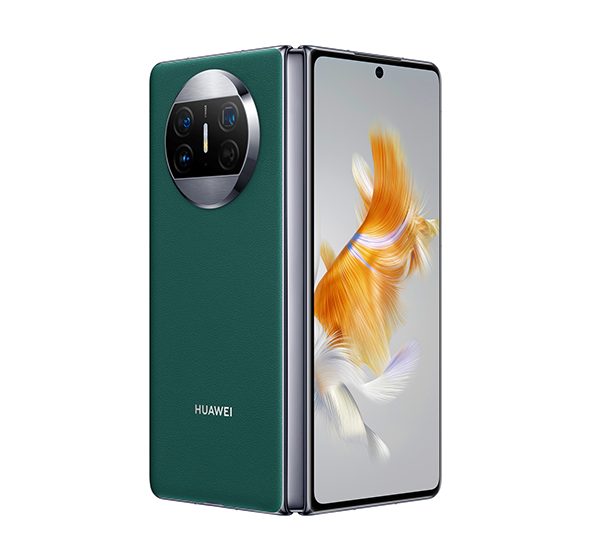OMODA & JAECOO Marks End-of-Ramadan Success with Strategic Fleet Expansion via Galadari Rent A Car
How Huawei Transformed the Foldables Landscape in Just 5 Years

Dubai, UAE, 29 November 2024
Few tech brands are as resilient as Huawei. Known for its relentless innovation and cutting-edge designs, the company has become a major player in the foldable smartphone market. While the broader smartphone market seems to be plateauing, Huawei has made significant strides in the foldable smartphone sector. According to a report by Counterpoint Research, in the first quarter of 2024, Huawei’s global foldable smartphone market shipments increased by 257% year-on-year, and its market share reached 35%. It is now among the top 3 brands in the global foldable market. With this success, Huawei is reshaping the future of foldable technology.
A 5-Year Innovation Journey Powered by Foresight
Huawei’s success in the foldable market didn’t happen overnight. In fact, Huawei was the first to predict foldable screens would become an inevitable mainstream trend in future smartphone development. As early as nine years ago, Huawei BG CTO Li Xiaolong(Bruce Lee) first mentioned a three-fold smartphone concept, which then took years to develop.
Huawei took the lead with the first release of HUAWEI Mate X at the 2019 Mobile World Congress in Barcelona – introducing a whole new form factor in smartphone design. 5 years on, Huawei is now hailed as an industry disruptor with the recent launch of HUAWEI Mate XT in China.
To be able to make leaps and bounds in its 5 years between its first and latest foldable, Huawei fused a hard-charging spirit with its innovative gene, taking an incisive approach to its innovations and carefully realising each vision into a real-world possibility.
Every year, Huawei invests over 10% of its sales revenue into R&D. Over the past decade, the company’s total R&D investment has surpassed CNY 1.11 trillion, with more than CNY 100 billion allocated annually to product and technology development. According to the Boston Consulting Group (BCG), Huawei is the world’s 8th most innovative company and ranks 5th in the 2023 EU Industrial R&D Investment Scoreboard.
This approach has clearly worked with every generation of Huawei foldable, each of which has had its own success: the seamless external folding of Mate X, the seamless internal folding of the Mate X2, the thin and powerful Mate X3 – each generation has had its own groundbreaking technical milestone. The folding tech has hit a new high with its latest and most cutting-edge HUAWEI Mate XT tri-fold smartphone, which was unveiled in China earlier this year, catching industry observers by surprise.
Solving Real-World Challenges
Success, of course, isn’t just about innovation for innovation’s sake. Huawei’s progress has been driven by a deep understanding of user needs. It stems from listening to consumer feedback and a commitment to solving real-world pain points. Huawei identified three key user challenges with foldable devices: the durability of the foldable screen, the weight and build of the device, and the creasing that could form over time from repeated folding.
Tackling these common user experience issues head-first therefore moved up on the list of priorities. Such a user-centric ethos made way for creative solutions for its foldables, which included the development of the water drop hinge, the advanced precision hinge system, and the integration of Kunlun Glass.
At the same time, Huawei has also managed to keep its products slim and lightweight; the newest Mate XT release has been widely praised for its incredibly thin design, which is only as thick as bi-fold smartphones from other popular brands.
Pioneering An Era-Defining Trend
Huawei’s influence in the smartphone industry is undeniable. Huawei’s innovations are now setting the pace for the industry. Not only is this a testament to Huawei’s trailblazing vision, but such progress is an essential part of a healthy tech industry that’s largely been missing. Huawei’s new foldable technology has already had a positive influence on a largely stagnating smartphone landscape, where more brands could use some inspiration in creativity and adoption of a user-focused R&D strategy.

















